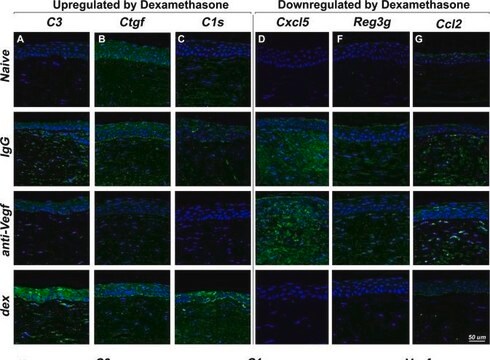S0697
Anti-Sortilin antibody produced in rabbit
lyophilized powder, affinity isolated antibody
Synonym(s):
Anti-SORT1
About This Item
Recommended Products
biological source
rabbit
Quality Level
conjugate
unconjugated
antibody form
affinity isolated antibody
antibody product type
primary antibodies
clone
polyclonal
form
lyophilized powder
species reactivity
mouse, rat, human
technique(s)
immunohistochemistry: suitable
western blot: 1:200 using rat brain lysates
UniProt accession no.
shipped in
dry ice
storage temp.
−20°C
target post-translational modification
unmodified
Gene Information
human ... SORT1(6272)
mouse ... Sort1(20661)
rat ... Sort1(83576)
Related Categories
Immunogen
Target description
Physical form
Reconstitution
Disclaimer
Not finding the right product?
Try our Product Selector Tool.
Storage Class Code
13 - Non Combustible Solids
WGK
WGK 2
Flash Point(F)
Not applicable
Flash Point(C)
Not applicable
Choose from one of the most recent versions:
Certificates of Analysis (COA)
Don't see the Right Version?
If you require a particular version, you can look up a specific certificate by the Lot or Batch number.
Already Own This Product?
Find documentation for the products that you have recently purchased in the Document Library.
Our team of scientists has experience in all areas of research including Life Science, Material Science, Chemical Synthesis, Chromatography, Analytical and many others.
Contact Technical Service







